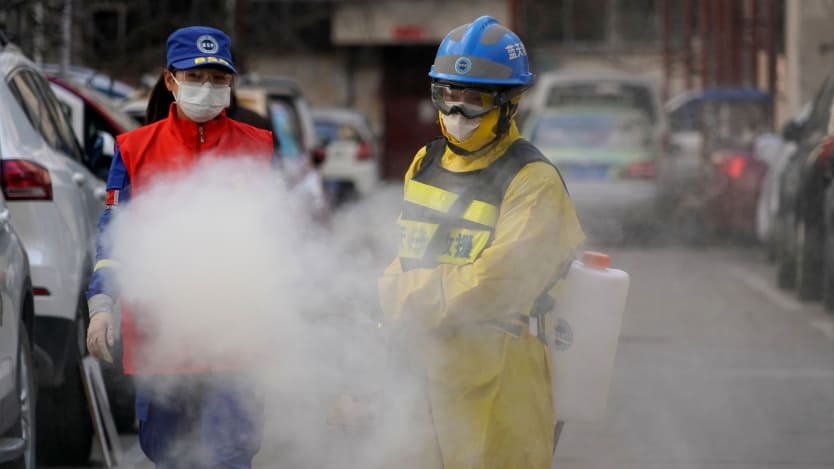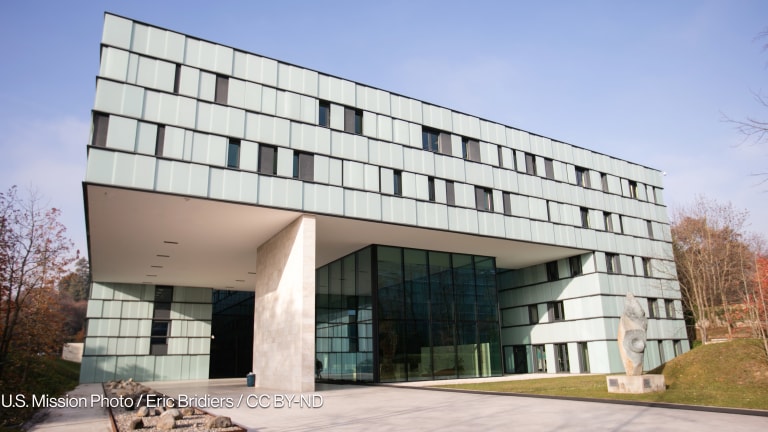
LONDON — The business continuity plans of many NGOs, detailing how to keep operating in the face of unprecedented disruption, are inadequate or nonexistent, according to the latest findings of a poll about the impact of the COVID-19 pandemic on the development sector.
“We're going to see some very long-term ripple effects from the coronavirus crisis that we are just starting to identify now.”
— Christine Sow, chief executive officer, HumentumHumentum, a company working to support the development sector’s operational capability, is conducting weekly spot polls with NGOs to find out how their work has been affected. The surveys provide insight into the challenges that the pandemic poses, with a significant impact on running programs and coordinating staff, financial systems and planning, security, and communication.
COVID-19 — a timeline of the coronavirus outbreak
Follow the latest developments on the new coronavirus that causes COVID-19.
“We're going to see some very long-term ripple effects from the coronavirus crisis that we are just starting to identify now,” Christine Sow, chief executive of Humentum, told Devex. “This is going to test us in ways that we are still discovering. … Unfortunately, there are no easy answers.”
The latest poll collected the responses of 36 organizations — mostly international NGOs based in the U.S. — and found that just 53% had a working business continuity plan, while 32% did not have one. The proportion of organizations that said their plan was insufficient stood at 15%.
Dealing with financial systems and planning was the most significant business continuity concern for the NGOs surveyed, with some respondents still working on paper-based systems and others worried about financial controls while working at home.
The second-most significant concern related to business continuity was the health and availability of staff. The disruption has also impacted the security protocol of some organizations, such as the possible evacuation of staff amid ongoing travel restrictions. Communication between staff members who are now all working remotely was identified as another issue.
Implementing programs on the ground in an environment of “social distancing” is likely to become challenging, according to Sow, particularly for professionals who work in communities, such as health workers and counselors.
“Those are the people who are actually doing the work of the international development sector,” she said. Highlighting both the personal health risks to development professionals and the culture of “stranger danger” that became prevalent during the Ebola crisis and interfered with their access to communities, she said it would become “increasingly difficult for them to be able to work safely.”
Meanwhile, 94% of organizations surveyed had changed their working practices in some way, and 60% had told staff to work from home. Fewer than half have changed their policies on sick leave, but nearly one-third increased the time off that their employees were allowed due to ill health.
NGOs are following varying protocols if a staff member is diagnosed with COVID-19, including quarantine for any worker exposed to the virus, deep cleaning of offices, and notifying others who have been in close contact with the infected.
But there is a great discrepancy in how NGOs can continue to operate depending on their location.
Sow said, “There is a big divide between how we're thinking about remote work at a headquarters based in Washington D.C., for example, and how country offices and organizations based in the global south are thinking about remote work, where they may have very, very different situations in terms of bandwidth and access to laptops, where they may have staff that don't live in houses or locales where it's actually possible to work remotely.”
She said that individual projects would need case-by-case adaptation, but called for sectorwide coordination. “That means that donors are talking to donors and getting ideas of how they're adjusting, that donors are talking with implementing partners, that implementing partners are talking with one another, that everybody working within any particular country is coordinating with that country's government and civil societies,” she added.
Search for articles
Most Read
- 1
- 2
- 3
- 4
- 5








